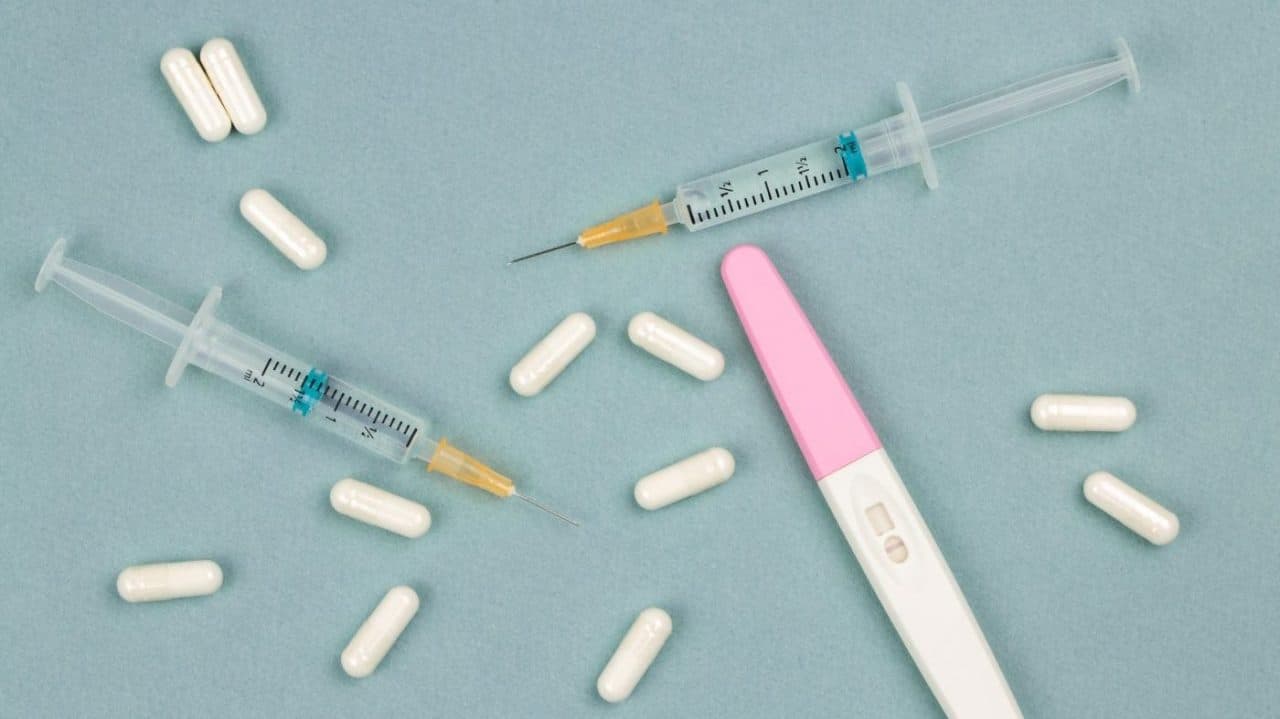Infertility is a complex issue that affects millions of people worldwide. It refers to the inability to achieve pregnancy after at least 12 months of regular unprotected sexual intercourse.
In women, several factors can contribute to infertility:
Tubal disorders: Blocked fallopian tubes, often caused by untreated sexually transmitted infections (STIs) or complications from unsafe abortion, can hinder conception.
Uterine disorders: Inflammatory conditions (like endometriosis), congenital anomalies (such as septate uterus), or benign growths (like fibroids) may affect fertility.
Ovarian disorders: Conditions like polycystic ovarian syndrome and other follicular issues impact ovulation.
Endocrine system imbalances: Hormonal irregularities due to problems with the hypothalamus and pituitary glands can disrupt reproductive function.
In men, infertility can result from:
Obstruction of the reproductive tract: Dysfunction in semen ejection due to blockages in tubes (such as ejaculatory ducts and seminal vesicles) can lead to infertility.
It's essential to recognize that infertility affects both genders and equal access to fertility care remains a challenge globally. Treatment options, including in-vitro fertilization (IVF), aim to address these issues and help couples achieve their dream of parenthood.

Drugs that Cause Infertility
Drug misuse can significantly impact fertility in both men and women. These impacts can be different in men & women.
Women's Fertility: Drug use can disrupt the multiple hormones (thyroid, pituitary, hypothalamus, adrenals, and ovaries) that play a crucial role in conception. Drugs may interfere with regular ovulation, while proper menstrual cycles are essential for fertility. Disruptions in ovulation can occur due to drug misuse. Drugs can impair the structures of the cervix, uterus, and fallopian tubes. Alcohol use can reduce women’s fertility by over 50%. Also, smoking thickens cervical mucus, hindering sperm from reaching the egg & can delay pregnancy by more than a year on average.
Men's Fertility: Drugs can affect the natural production of testosterone, which negatively impacts sperm production. Drug use may lead to erectile dysfunction and loss of sex drive, further affecting fertility. Often, drug use accompanies an unhealthy lifestyle, which harms male fertility.
Alcohol
Alcohol, even in moderate amounts, can significantly impact sexual health and fertility in both men and women. Alcohol affects sperm count, size, shape, and motility, impacting fertility. Here’s how it affects fertility:
Male Fertility: Heavy drinking lowers testosterone levels, follicle-stimulating hormone, and luteinizing hormone. It also raises estrogen levels, reducing sperm production. Alcohol can shrink the testes, potentially leading to impotence or infertility. It may cause early ejaculation or decreased ejaculation. Alcohol alters the shape, size, and movement of healthy sperm. Mixing alcohol with substances like marijuana or opioids further lowers fertility. Excessive drinking can lead to liver disease, affecting sperm quality. Exposure to alcohol during development may alter DNA, potentially leading to inherited health problems.
Female Fertility: Alcohol can reduce libido and disrupt regular ovulation. Irregular cycles impact fertility. Alcohol thickens cervical mucus, hindering sperm movement. Drinking before pregnancy poses risks during gestation. The good news is that alcohol's effects on sperm count are reversible.

Marijuana
Marijuana use can significantly impact fertility in both men and women. Here’s how it affects reproductive health:
Female Fertility: Marijuana may interfere with regular ovulation, affecting the release of eggs. Cannabis can shorten menstrual cycles, potentially complicating embryo implantation. A recent study found that female marijuana users had a twofold increase in the risk of pregnancy loss compared to past or non-users. Marijuana use results in fewer eggs retrieved during in vitro fertilization (IVF).
Male Fertility: Marijuana decreases sperm count and alters sperm shape and function. It depletes sperm before reaching the egg, reducing fertility. A specific component of marijuana (CBD) binds to sperm receptors, affecting their structure and function. Interestingly, couples in which the male partner was a marijuana smoker had a higher adjusted probability of live birth.

Tobacco
Tobacco use significantly impacts fertility in both men and women. Quitting smoking improves fertility, although the decrease in egg supply cannot be reversed. Here’s how it affects reproductive health:
Female Fertility: Chemicals in cigarette smoke (such as nicotine, cyanide, and carbon monoxide) accelerate egg loss. Unfortunately, once eggs die off, they cannot regenerate or be replaced—women who smoke experience menopause 1 to 4 years earlier than non-smokers. Female smokers require more ovary-stimulating medications during in vitro fertilization (IVF). They also have fewer eggs retrieved and 30% lower pregnancy rates compared to non-smoking IVF patients. Smoking damages the genetic material in eggs, leading to higher miscarriage and birth defect rates. Women who smoke are more likely to conceive chromosomally unhealthy pregnancies. Female smokers face a higher risk of ectopic pregnancies and preterm labor.
Male Fertility: Male smokers suffer decreased sperm quality, including lower sperm counts and motility. Abnormally shaped sperm are also more common. Smoking might decrease sperm's ability to fertilize eggs. Women exposed to secondhand smoke face similar risks.
Blood Pressure Medication
Blood pressure medications can impact fertility, particularly in men. Here’s how they affect reproductive health:
Alpha-blockers: These drugs treat urinary symptoms due to an enlarged prostate. If you're on these medications, consult a urologist to discuss their impact on fertility and explore alternative treatments.
Antidepressants (SSRIs): SSRIs, commonly prescribed for depression and anxiety, may cause sexual dysfunction, including prolonged time to ejaculation. Balancing mental health is crucial, but consider discussing alternative medications if you're planning to become a parent.
Beta-blockers: These antihypertensive drugs are associated with lower semen volume, concentration, motility, total sperm count, and total motile sperm count. If you're taking beta-blockers, consult your healthcare provider to assess their impact on fertility.
Antidepressants
The impact of antidepressants on fertility remains a topic of interest. While we lack definitive studies specifically examining their effect on fertility, here's what we know:
SSRIs and IVF Outcomes: Some studies have explored the impact of selective serotonin reuptake inhibitors (SSRIs) on in vitro fertilization (IVF) outcomes. In a retrospective study, women taking SSRIs during IVF had similar peak estradiol levels, oocyte retrieval numbers, and fertilization rates as non-exposed women.
Depression and Anxiety: It's essential to consider the context. Many women seeking infertility treatment have a history of depression or anxiety. Severe depression or stress can affect the hypothalamic-pituitary-gonadal (HPG) axis, potentially impacting menstrual regularity and fertility.
Sperm Health: For men, antidepressants may indirectly affect fertility. Sperm exposed to these medications can have increased DNA fragmentation, potentially impairing fertilization. Additionally, antidepressants can decrease libido, which could contribute to infertility.
Conception Delays: SSRIs were associated with reduced efficacy of infertility treatments and linked to miscarriage and preterm birth.

Antipsychotics
Antipsychotic medications can impact fertility, particularly in women. Here’s how they affect reproductive health:
Hyperprolactinemia: Antipsychotics block dopamine D2 receptors, leading to elevated prolactin levels (hyperprolactinemia). Hyperprolactinemia can cause irregular menstrual cycles, anovulation (lack of ovulation), and altered estrogen and FSH levels. Symptoms may include decreased libido, galactorrhea (milk leakage from breasts), and a potential risk for osteoporosis.
Reversible Impact: The impact of antipsychotic medications on fertility is reversible if you stop taking them. If you're on antipsychotics, consult your doctor before making any changes to your medication regimen.
Steroids
Steroid use can significantly impact fertility in both men and women. Here are the effects:
Men's Fertility: Steroids interrupt the normal hormonal flow needed for healthy sexual behavior. This can lead to ED and impotence. Steroids drastically reduce sperm production; often depleting sperm counts to zero. Once steroid use stops, sperm levels typically return within about three months. Long-term users may take up to a year or more for recovery. Steroids can cause acne, breast development, liver problems, heart attacks, and strokes.
Women's Fertility: Steroid use during pregnancy can lead to birth defects in developing fetuses. Prolonged steroid use may cause complications during pregnancy. Steroids can affect menstrual cycles and overall chances of conceiving. Steroid abuse may increase the risk of cervical cancer, impacting fertility.
Chemotherapy
Chemotherapy, a common cancer treatment, can harm your ovaries and disrupt hormone levels, potentially leading to infertility and premature ovarian failure. The effects can vary depending on the specific drugs used. Permanent infertility is more likely with higher doses of chemotherapy, especially in older women approaching menopause. Some chemotherapy drugs damage the eggs in the ovaries, rendering natural conception impossible and causing symptoms similar to menopause. Cancer patients must discuss fertility concerns with their care team before surgery or treatment begins. Open communication ensures that necessary information, support, and resources are provided to address any doubts or expected fertility problems.

Supplemental Testosterone
Testosterone supplementation can impact fertility, particularly in men. Here's how it affects reproductive health:
Sperm Production and FSH: Testosterone treatment decreases sperm production by lowering levels of follicle-stimulating hormone (FSH). FSH is crucial for stimulating sperm production. The testes, where sperm are produced, maintain much higher testosterone levels than what circulates in the blood. In most cases, the infertility caused by testosterone treatment is reversible. Men who receive testosterone for shorter durations tend to recover more quickly.
Forms of Testosterone: Shots and pellets are more likely to cause infertility than gels, although any form of testosterone supplementation can disrupt the hormonal balance required for sperm production. If a man desires children, he should consult a male reproductive specialist and avoid testosterone treatment until family planning is complete.
Methamphetamine
Methamphetamine, commonly known as "meth" or "crystal meth," can significantly impact fertility, particularly in men. Here's how it affects reproductive health:
Sperm Health: Prolonged meth abuse leads to a decrease in sperm count. The remaining sperm may be damaged, affecting their egg fertilization ability. Methamphetamine reduces sperm motility (their ability to swim), impairing their journey toward the egg. Sperm that retain motility often suffer significant DNA damage.
Women's Fertility: While methamphetamine itself doesn't directly cause miscarriages, its use during pregnancy can lead to complications. Women with meth addiction face a high unintended pregnancy rate (up to 86%). Meth and other stimulants can adversely affect most levels of the reproductive system, leading to a higher risk of miscarriages.
Conclusion
Drug misuse can significantly impact fertility in both men and women. Illicit drugs, as well as alcohol, are major contributors to infertility. For women, drug use can directly affect the reproductive systems responsible for conception, including hormone production, menstrual cycles, and ovulation. Even legal substances like alcohol and caffeine can reduce fertility. Tobacco use thickens cervical mucus and hinders sperm from reaching the egg, delaying pregnancy. Additionally, substance use disorders during pregnancy raise concerns about child welfare and a safe home environment. Some prescription medications, such as anti-seizure drugs and thyroid medications, may also impact female fertility. For both men and women, long-term use of recreational drugs like cocaine, heroin, ecstasy, and cannabis can lead to permanent reproductive system problems and infertility. Remember, seeking professionaladvice is crucial when dealing with fertility-related concerns.
Read More